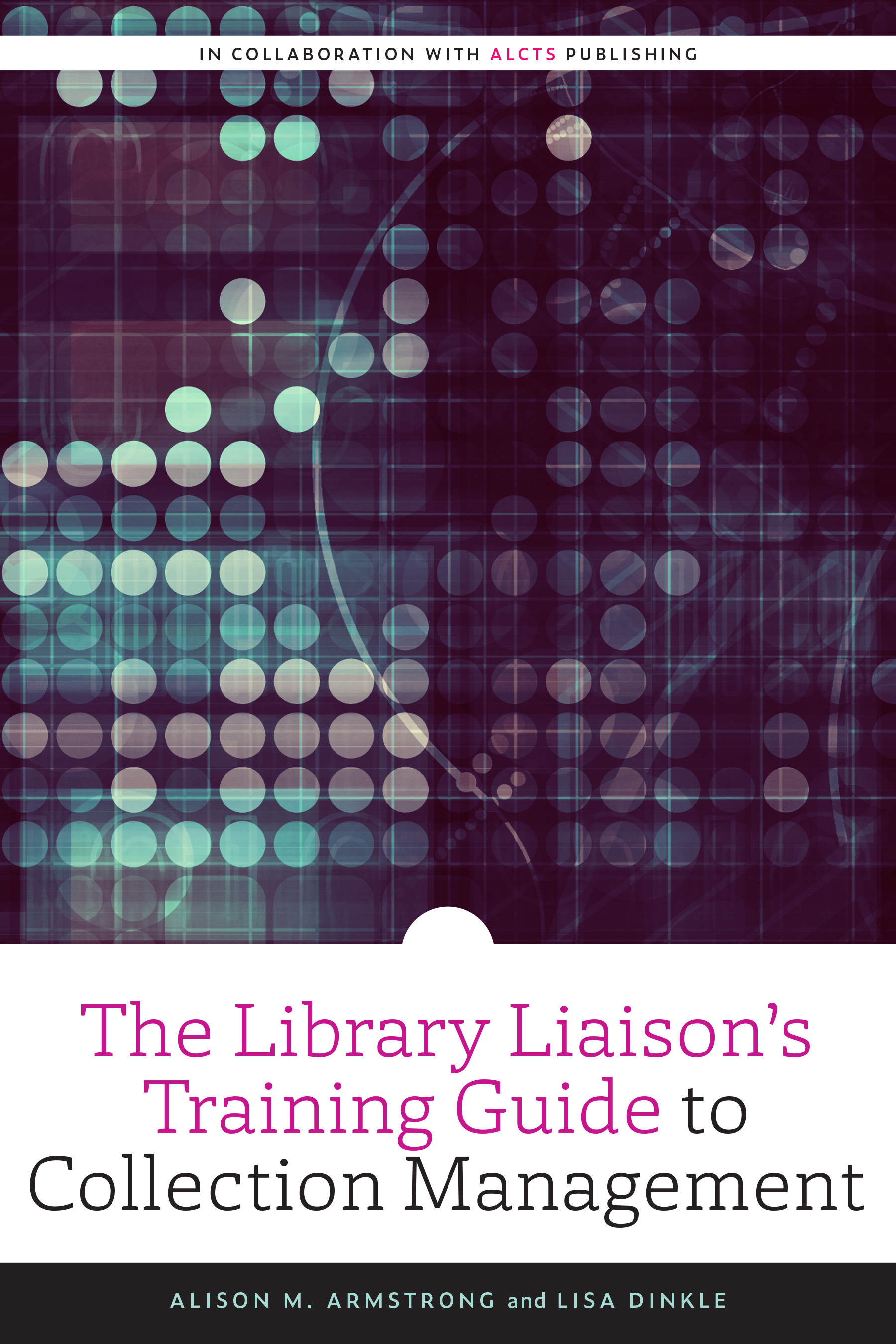Primary tabs
You don't need to be an ALA Member to purchase from the ALA Store, but you'll be asked to create an online account/profile during checkout to proceed. This Web Account is for both Members and non-Members. Note that your ALA Member discount will be applied at the final step of the checkout process.
If you are Tax-Exempt, please verify that your account is currently set up as exempt before placing your order, as our new fulfillment center will need current documentation. Learn how to verify here.
- Description
- Table of Contents
- About the authors
- Reviews
Library liaisons often have primary jobs that do not involve collection development, but their familiarity with collection practices makes all the difference in faculty relations. And time pressures mean that on-boarding needs to be as streamlined as possible. This concise, field-tested training manual will put your liaison on solid footing. Plus, end of the chapter prompts make it easy to tailor your approach to local practices. With the help of this resource, your new liaison will get up to speed on such topics as
- tracking budget balances in assigned departments;
- differentiating between the needs of an individual faculty member and their department;
- how to say no to monograph requests;
- benchmarking titles with peer institutions or coordinating within a consortium;
- 17 questions to ask when evaluating a database;
- considerations when making weeding decisions;
- four key conversations to have annually between liaisons and collection development librarians; and
- gathering data for program accreditation reports.
Utilizing several dozen real-world examples which show liaison decisions and actions in practice, this guide will be a useful tool for collection development librarians to streamline training processes for library liaisons.
A Note to Collection Development Librarians
Preface
Chapter 1: The Library Liaison’s Role
Chapter 2: Collection Development
Chapter 3: Fund Management
Chapter 4: Ordering
Chapter 5: Collection Development Committee
Chapter 6: Building Relationships
Chapter 7: Continuing Resources
Chapter 8: Cooperative Initiatives and Partnerships
Chapter 9: Collection Assessment and Weeding
Chapter 10: Accreditation Reviews
Chapter 11: Library Liaison Assessment
Conclusion
Local Practices Questionnaire
Suggested Reading
Bibliography
Index
Alison M. Armstrong
Alison M. Armstrong has been the collection management librarian at Radford University in Virginia since 2011. She has a BA in literature from the University of North Carolina at Asheville and an MLIS from the University of North Texas. She is an instructor of the “Fundamentals of Collection Development and Management” and the “Fundamentals of Collection Assessment” web courses. Armstrong serves on the Collection Committee of the Virtual Library of Virginia (VIVA) and was co-chair of VIVA’s Monographic Collection Analysis Task Force. She served on the Montgomery-Floyd Regional Library System’s Board of Trustees from 2012 to 2020. She has also served on multiple ALCTS committees.
Lisa Dinkle
Lisa Dinkle is an instruction librarian at Radford University. She was the collection assistant there from 2014 to 2016. She has degrees in history and library information science. Her dual role as a library liaison and instruction librarian gives her more opportunities to connect with her departments. These opportunities have allowed her to collaborate with faculty and students to showcase library resources and services. She is the founding member of an instruction librarians’ book club, which invites librarians to build their instructional skills through reading, discussion, and praxis, with occasional conversational detours into collection development and library liaison practices at other institutions.
Core
The former Association for Library Collections and Technical Services (ALCTS), the Library Information Technology Association (LITA), and the Library Leadership and Management Association (LLAMA) are now Core: Leadership, Infrastructure, Futures, a new division of ALA. Its mission is to cultivate and amplify the collective expertise of library workers in core functions through community building, advocacy, and learning.
”An effective training manual to be used as basis for understanding and mastering local practice ... I only wish such a resource had been available 40 years ago when I was learning to be a library liaison and as I subsequently assumed the role of training others."
— Technicalities
”Although other sources focus exclusively on either the role of a library liaison or collection development, Armstrong and Dinkle offer an overview of collection management tailored to library liaisons and imbued with everyday practical wisdom ... Notably, the case studies exemplify novel circumstances that only experience could teach and conclude with a bulleted list of key takeaways."
— Technical Services Quarterly
”[This book] is a comprehensive overview of a liaison’s role in the life cycle of library collections ... Armstrong and Dinkle offer libraries an ideal model for engaging liaison librarians in management of the collection. However, they are realistic about local practices. Among the most valuable tools in this book is each chapter’s 'Local Practices Questionnaire.' These questionnaires are not only a useful framework for new liaisons, they may also help collection managers organize training materials or anticipate common questions."
— Journal of Electronic Resources Librarianship



